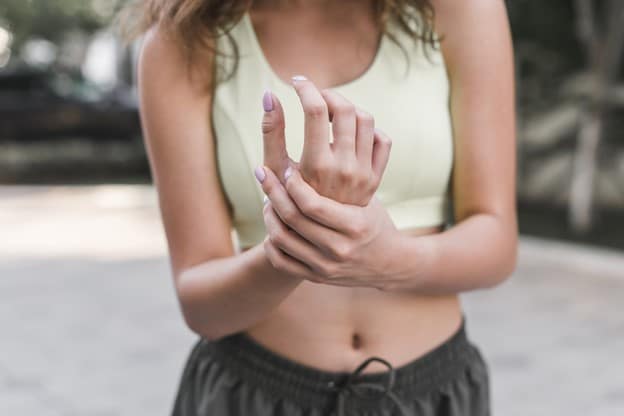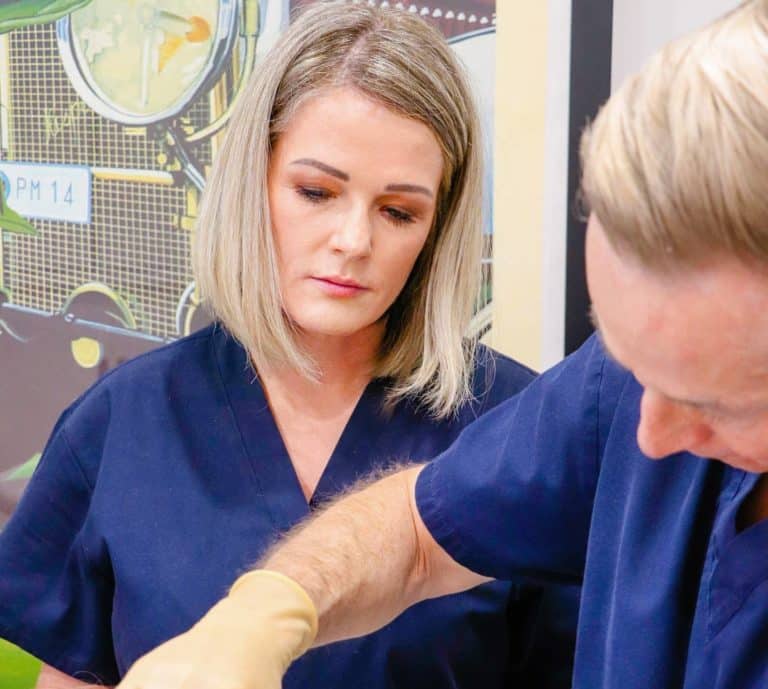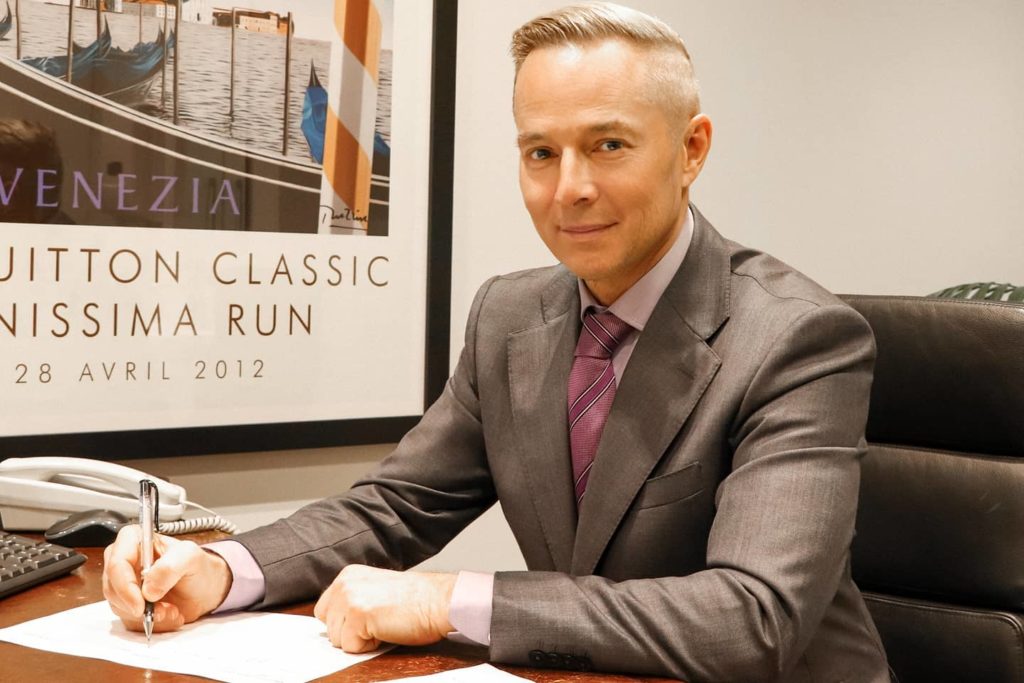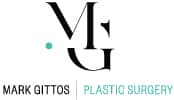Hand ligament injury surgery by Dr Mark Gittos Plastic Surgeon in Auckland NZ
The hand is made from multiple bones, muscles, tendons, and ligaments. Ligaments are thick bands of connective tissue that connect the small bones in your hands to each other. Hand and wrist sprains are traumatic injuries to ligaments that can lead to their partial or complete laceration.
Leaving ligament injuries untreated may lead to problems in the joints in your hands. Several treatments are available for ligament injuries which include rest, immobilization with a splint, and surgery.
Dr. Mark Gittos is a plastic and reconstructive surgeon that specializes in hand surgery and offers surgical and non-surgical treatment for different hand disorders, including ligament and tendon injuries.
What are ligaments?
Ligaments are thick bands of fibrous connective tissue that connect your bones to each other. They extend from one bone to another to form a joint. Their main function is to support and strengthen the joint, maintaining a specific range of motion.
The fingers, hand, and wrist are composed of multiple bones that are connected to each other by ligaments. These ligaments are vulnerable to injury due to our extensive use of our hands in different activities of daily life.

What causes hand ligament injuries?
A “sprain” is the term used to describe common mild ligament injuries. Trauma, like falling from a height, is one cause of sprains. Traumatic lifting or twisting of a finger or your wrist can also lead to ligament injury.
More severe trauma can lead to a more severe injury and possibly a complete tear of one or more ligaments, as is the case with some motor vehicle accidents. Ligament tears can subsequently cause dislocation of the affected joint, along with the corresponding symptoms.
What are the signs and symptoms of hand ligament injuries?
Pain and swelling are the most obvious symptoms that accompany hand ligament injuries. This can be managed early on with painkillers, anti-inflammatory drugs, rest, and splinting.
If an injury is severe enough, it might cause joint instability, where certain hand or finger movements will be painful and abnormal or incomplete. Stiffness and weakness can also occur. If the affected joint gets dislocated, it will lead to an obvious deformity and pain, and it might require urgent relocation.
How are ligament injuries diagnosed?
Dr. Mark will start by asking you a few questions about your symptoms, the mechanism of injury, your medical history, and your home medications. After that, he will go on to examine your hands and try to assess the range of motion of your fingers and wrists to discover the affected ligament and evaluate the severity of the injury. An X-ray might be ordered just to be sure that there are no associated fractures that can be causing your symptoms.
If the injury is mild, Dr. Mark will usually not ask for any further testing and will recommend rest, ice packing, and painkillers to manage your symptoms. In most mild cases, this conservative treatment is enough, and your injury will heal in a few days. If the injury is more severe, Dr. Mark might order some more advanced imaging tests to identify the injury and plan treatment. MRI and CT scanning of the hand are excellent in identifying ligament injuries and in visualizing the anatomical details of the hand. One of these tests might be ordered based on your specific case in order to confirm the diagnosis.
How is hand ligament injury treated?
Mild wrist sprains can be treated conservatively, however, more severe injuries might require surgery.
1. Conservative treatment for ligament injury
- Anti-inflammatory drugs: Drugs such as ibuprofen and aspirin can be used to ease off the pain caused by wrist sprains.
- Rest: You will be asked to avoid overusing your injured hand for a couple of days to allow it to properly heal
- Ice packs: Ice packs will help reduce inflammation and decrease pain
- Splints: Your doctor might recommend that you wear a splint for a few days to immobilize your hand joints and allow the injured ligament to heal
2. Surgical treatment for Ligament injury

If your injury is severe, Dr. Mark might recommend surgical treatment.
There are several surgical techniques to treat partial or complete ligament tears, and many times a combination of them is used:
- Ligament repair/pinning: If the injury is discovered early on (within a few weeks), Dr. Mark might attempt to repair the ligament by inserting metallic pins. These pins stabilize the joint so that the ligaments can heal. The pins will be removed after complete healing has taken place. This technique is not usually effective if too much time has elapsed on the injury.
- Reconstruction: If more than 6 months have passed on the injury, Dr. Mark might attempt reconstruction using a tendon graft. In this technique, Dr. Mark will take a tissue graft from a nearby location and implant it at the site of injury to replace the torn ligament. Pins will be inserted to stabilize to joint and allow healing.
- Fusion: Fusion of the joint might be attempted if you already have arthritis (joint inflammation) to relieve joint pain and stabilize movement.
- Arthroscopy: In certain cases, arthroscopic surgery might be feasible. This means the use of a scope to see and treat the injury through small skin incisions.
What to expect after hand surgery?
Dr. Mark will likely recommend that you wear a splint for some time after surgery to immobilize your joint and allow the ligaments to heal. Some pain, stiffness, and limited range of motion can be expected after surgery. You might be prescribed physical therapy sessions to restore your full hand functions.
For those living near his clinics in New Zealand, Dr. Mark Gittos can offer full evaluation for hand trauma and hand disorders as well as surgical and non-surgical treatments. Dr. Mark is a well-known plastic and reconstructive surgeon who has a lot of experience in hand surgery. Contact us to set up an appointment and get a full evaluation, or to learn more about your condition.
Complications and Risks of Hand Surgery
Hand surgery incurs risks and complications like all invasive surgery. Dr Gittos will make you aware of potential complications during your consultation. This includes general anaesthesia risks, bleeding (Hematoma), infection, wound healing, deep vein thrombosis, scarring and numbness. Always stay informed and healthy, do NOT smoke before or after your procedure and read & understand your risks of surgery.
Further Reading – Medical Sources about Hand Ligament injury & Sprains:
- NYU Langone Health on Diagnosing Hand Sprains & Strains
- Physio.co.uk article on Ligament Injuries in the Fingers
- British Society for Surgery of the Hand on Hand Injuries
- American Society for Surgery of the Hand on Sprained Wrist
How to find a hand surgeon in Auckland, NZ
Always choose a top specialist plastic surgeon or hand surgery expert for your hand surgery to ensure an excellent outcome. As a general rule it is better to avoid the cheap option when seeking surgery. Look at your surgeons online reviews to find out how they look after their patients and what their patient says about them.
Why Choose Dr Mark Gittos?
Dr. Mark Gittos in Auckland, New Zealand is a specialist plastic surgeon who is experienced in treating hand injuries and disorders, such as nerve compression disorders, ligament or tendon injuries, among others. If you’d like to learn more about your condition, call us to set an appointment with Dr. Mark to get a full assessment and discuss treatment options.
Make an Appointment for a Hand Consultation with Dr Gittos
If you have any symptoms that might be related to a hand tendon injury, please call to make an appointment with Dr. Mark Gittos in Auckland, New Zealand. Dr. Mark is a plastic surgeon who is experienced in treating a wide range of hand disorders, such as trigger finger, De Quervain’s syndrome, cubital and radial tunnel syndromes, carpal tunnel syndrome, ligament disorders, and tumours or ganglions. Come visit us to get a full assessment of your condition and learn about your treatment options.
About Dr Mark Gittos FRACS (Plast) – New Zealand Plastic Surgeon
Practice locations in Herne Bay Auckland, Northland and Bay of Plenty – Kerikeri, Whangarei, New Plymouth & Tauranga
Dr Mark Gittos is a leading Specialist Plastic Surgeon and operates a practice in Herne Bay, Auckland and in the UK. The practice focuses on both surgical and non-surgical procedures, each designed to help restore, improve or change a physical characteristic or problem. The first step in every case is to talk through your personal requirements and explore all the options, before deciding on the most effective solution.
Dr Mark Gittos offers high quality, natural-looking cosmetic surgery results and is highly experienced in Breast, Body and Face Surgery having performed over 4000 Surgeries in the last 26 years. With worldwide expertise Dr Gittos is an expert in breast, face and body surgery for men & women.
Naturally, before any treatment is begun, we will explain clearly the advantages and risk factors; so that you have the information you need to make an informed decision that is best for you. Visit the practice to find out more.

NEXT STEPS
Please NOTE: Dr Gittos only performs surgery on non-smoker patients with a BMI less than 30. To check your BMI please visit the NZ Heart Foundation website. For help giving up smoking before surgery visit the Smoke Free website
Do your Research
- Read the Website and Blogs relevant to your procedure
- Browse our Frequently Asked Questions including how to choose a Surgeon for your procedure
- Download and read the FREE Guides to Surgery
What to Bring to your Plastic Surgeon Consultation
- Bring a friend or relative to help discuss the information and your choices
- Take lots of notes and read the documents provided thoroughly
- Dress in simple clothes as you may need to undress for examination
- Bring your medical referral and any relevant medical documents or test results
Book your Initial Surgery Consultation
- A Referral from your GP or specialist is helpful but NOT essential – you can have a consultation without a GP Referral
- Email us or Call on 09 529 5352 to arrange your surgeon consultation appointment.
- Book a consultation with Dr Gittos by paying the Consultation Fee – $350 incl GST
Traveling for Surgery? – Consider post-surgery luxury recovery in a Hotel with LuxeCare
Please contact us to arrange to book a consultation with our Specialist Plastic Surgeon or to speak with our Patient Care Advisor.
Send an enquiry form today or phone 09 529 5352 during Clinic Hours
